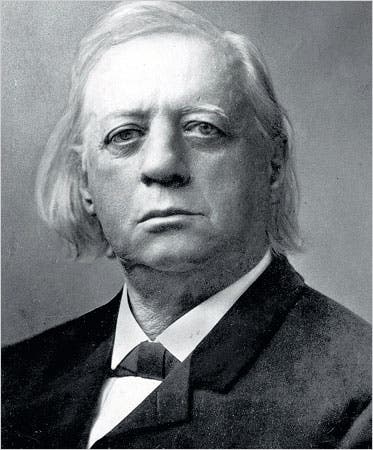“All men are commanded to repent. How significant that no women are thus commanded!”
Lavinia Goodell, May 1872
In early 1872, newspapers reported the scandalous story that Sarah Smiley, a Quaker woman, had been allowed to preach in a Brooklyn Presbyterian church. Lavinia Goodell, who had moved from Brooklyn to Janesville, Wisconsin the previous year, followed the story with interest and wrote a series of articles expressing her support that women should be allowed in the ministry – and in every other profession. Read more here.
Professor S.C. Bartlett, D.D., who was then a professor at the Chicago Theological Seminary and later became the president of Dartmouth College, wrote lengthy opinion pieces for the Advance, a weekly publication of the Congregational Church, arguing that St. Paul himself forbade women from preaching and how dare Ms. Smiley or anyone else think otherwise.
Bartlett’s articles caught the attention of Henry Ward Beecher, the famous pastor whose Brooklyn church Lavinia had sometimes attended.

Beecher was a woman’s rights advocate and countered Bartlett’s arguments. This led to a spirited back and forth between the two men.
In the March 27, 1872 issue of his paper, the Christian Union, Beecher wrote:
Now, can there be a greater revolution conceived than has taken place from such a state of the social system to that which now exists? – a revolution as to the idea of woman’s capacities and place in the social system, and education and powers and prerogatives of intellectual and social influence? … Nor should the popular errors of the days of the apostles be disregarded…. But all this state of society has passed away. It is now believed that women can be and ought to be highly educated, and that they can exert a powerful influence on public questions of morals, religion, and legislation.
Lavinia had clearly been following the exchange. In a short article titled “New Light,” that appeared in the May 4, 1872 issue of the Woman’s Journal, she took playful aim at what she believed were Bartlett’s antiquated notions about woman’s sphere. She said Bartlett settled one thing conclusively: “that women must not become bishops. Reason, because a bishop must be ‘the husband of one wife’ – and how can a woman be the husband of one wife?” She said, “This literal rendering of the apostolic injunction not only settles the woman question, but divers other little items.” She went on:
For instance, it is equally clear that no bachelor should become a bishop, as he certainly is not “the husband of one wife,” also that when a bishop becomes a widower he should immediately resign his charge, being no longer “the husband of one wife.” It moreover raises the horrible suspicion that a man who isn’t a bishop may have as many wives as he chooses.
In Professor Bartlett’s opinion, the word “elders” as used in the Bible meant only people of the masculine gender. From this he reasoned that women could not be elders. Lavinia carried this theory to its (il)logical conclusion:
If the nouns and pronouns of “masculine gender” … refer to man alone to the exclusion of woman, we are exempt from all moral and legal obligations. “Judgment came upon all men to condemnation.” It is certainly pleasant to reflect that we are not included in the category! …
“All men are commanded to repent. How significant that no women are thus commanded…. But what does this prove? Either that [women] are sinless, and have nothing to repent of, or that they are destitute of a moral nature, and so inescapable of either sinning or repenting. In one case they are angels; in the other, animals. Which theory shall we adopt? Will not Professor Bartlett make another excursion into his Greek, and enlighten us?
Read Lavinia’s entire article here.
Sources consulted: “New Light,” by Lavinia Goodell, published in the Woman’s Journal, vol. 3, No. 18, 5/4/72, seq. 145, Schlesinger Library, Radcliffe Institute, Harvard University; “Women’s Preaching,” by Professor S. C. Bartlett, D.D., published in the Advance on April 18, 1872; “Professor Bartlett on women’s Preaching,” published in the Christian Union on March 27, 1872; https://www.encyclopedia.com/reference/encyclopedias-almanacs-transcripts-and-maps/bartlett-samuel-colcord.







